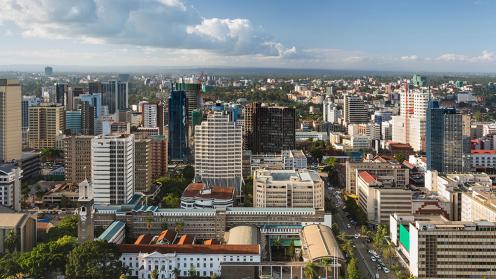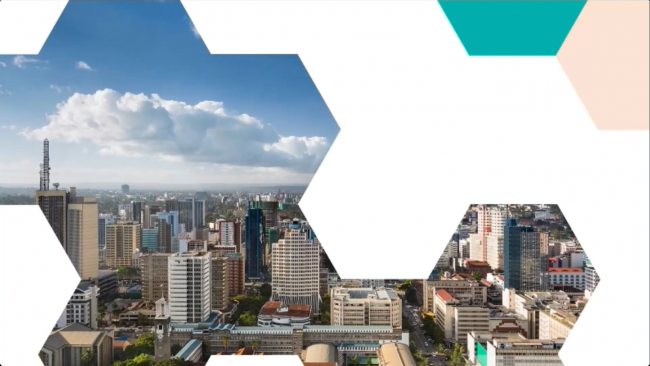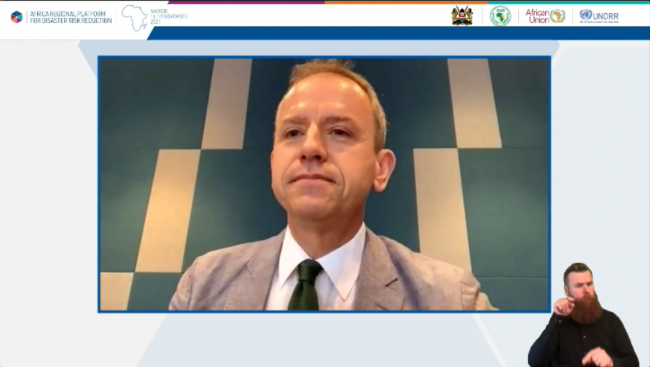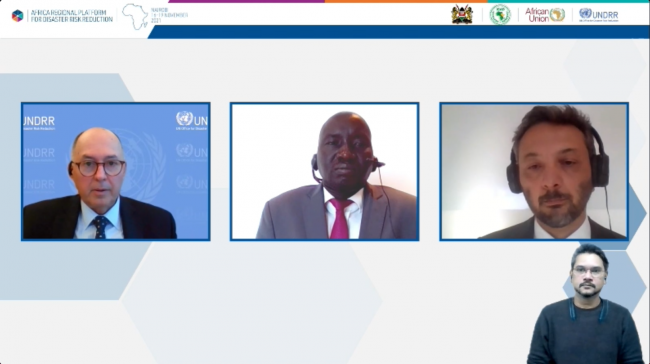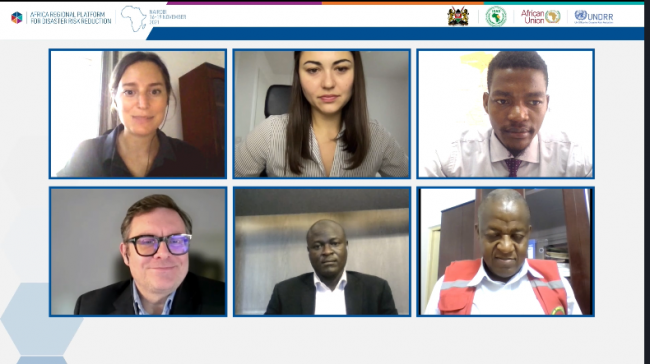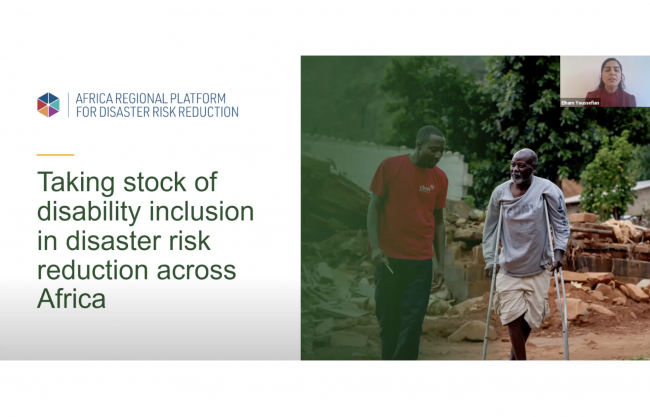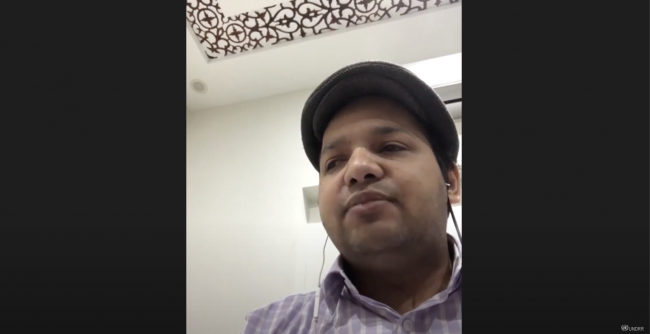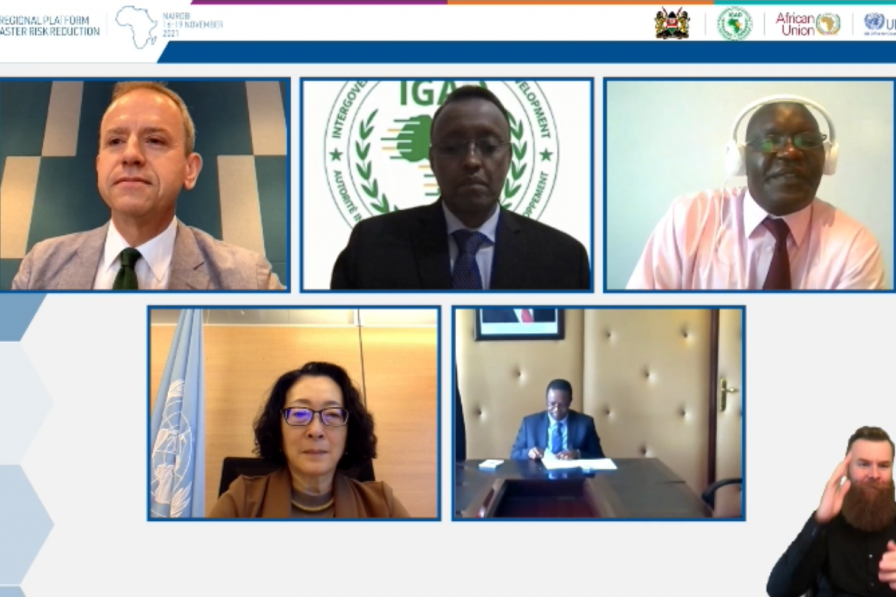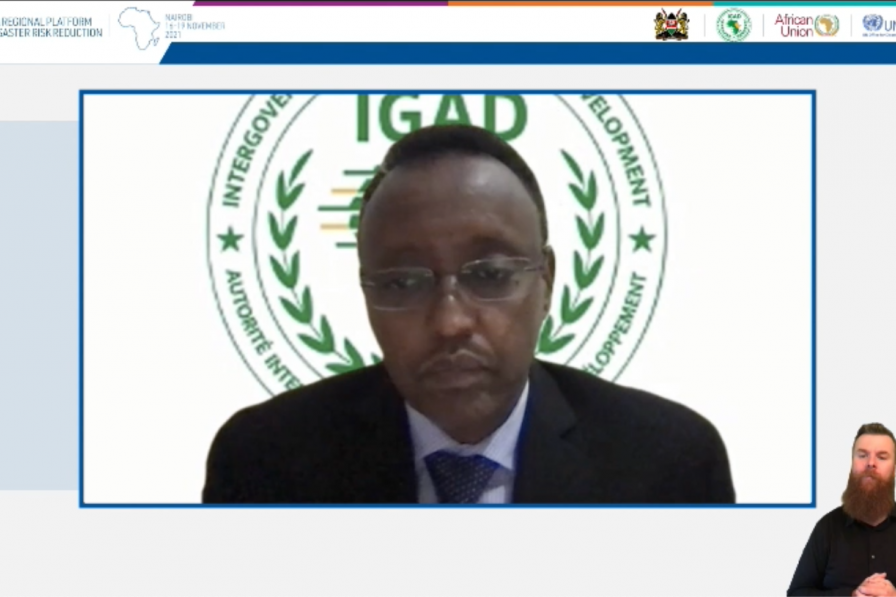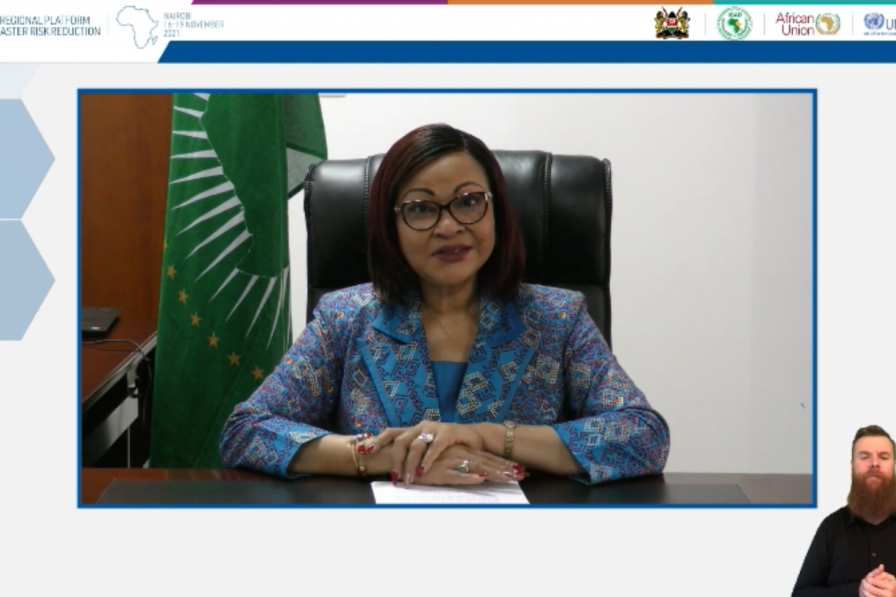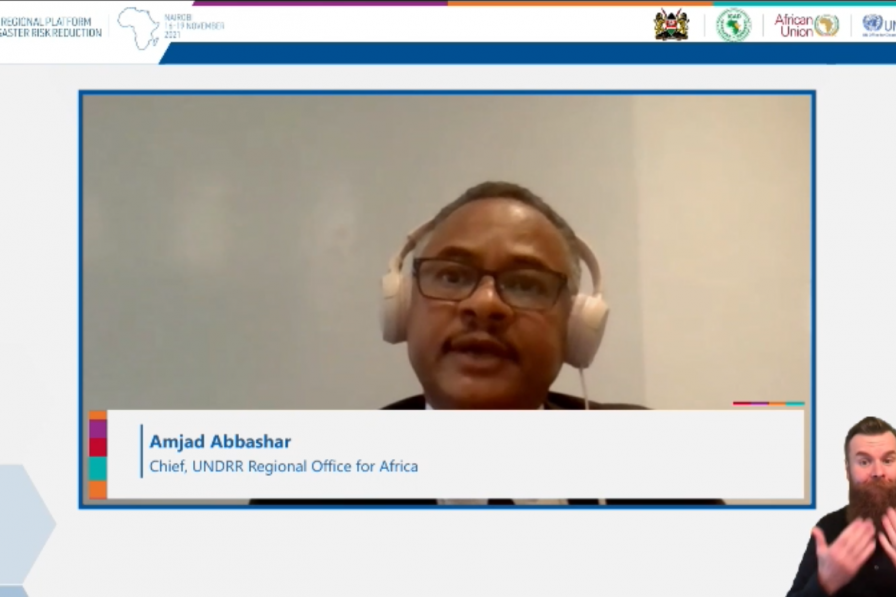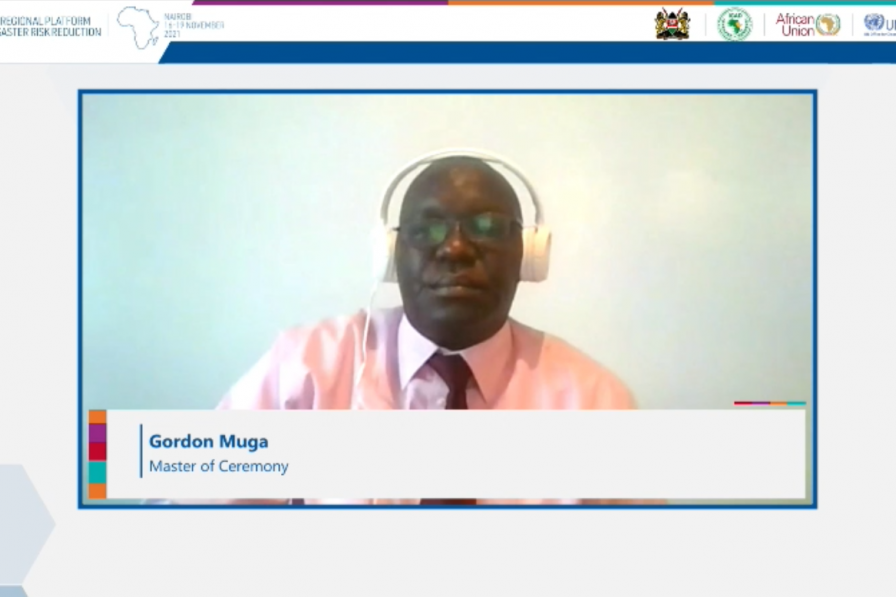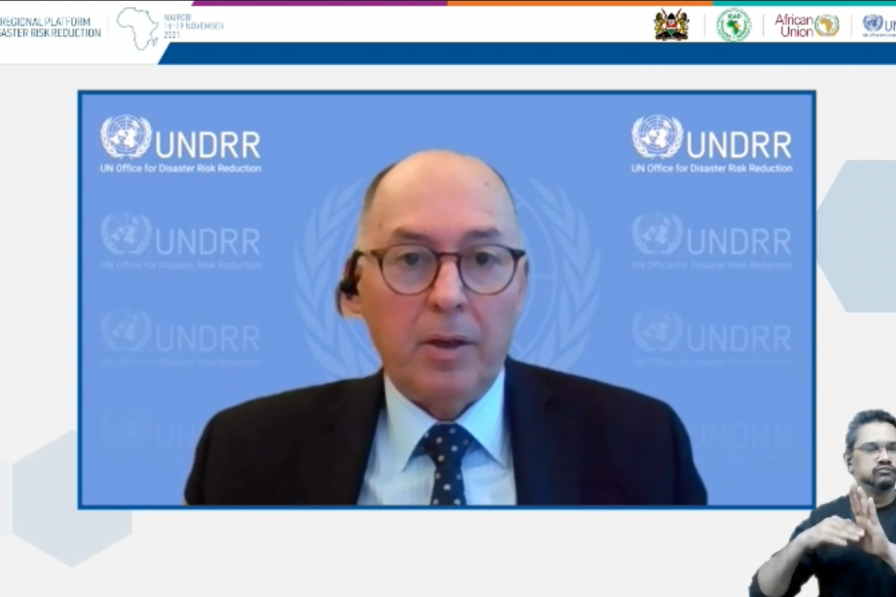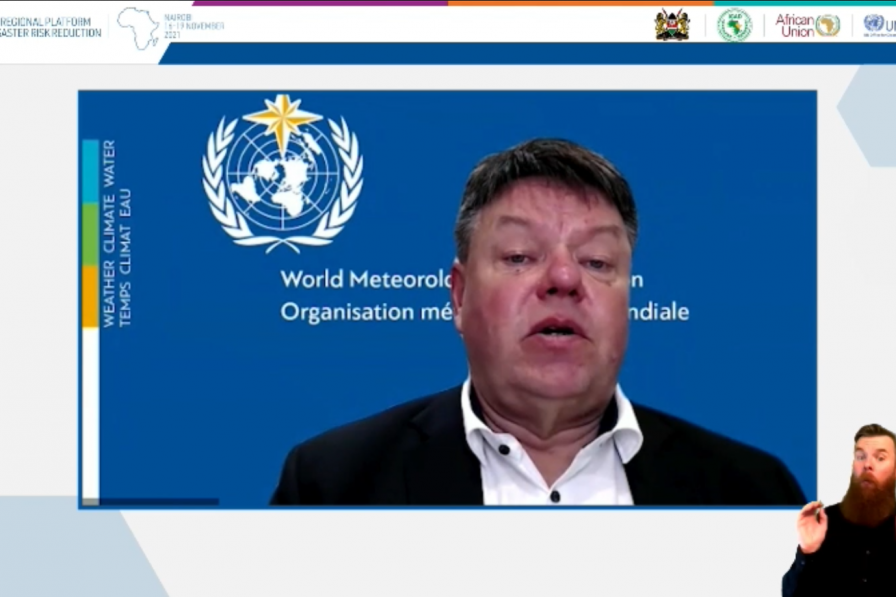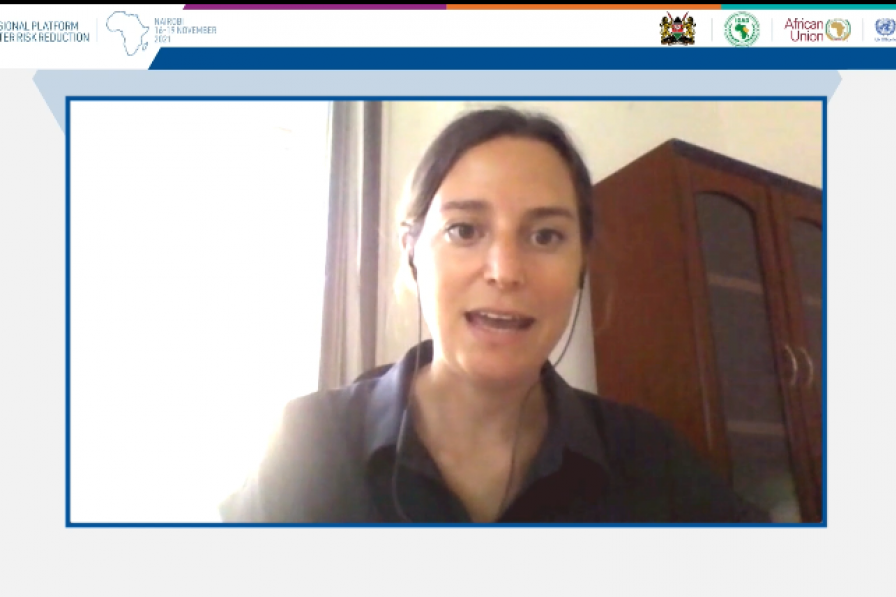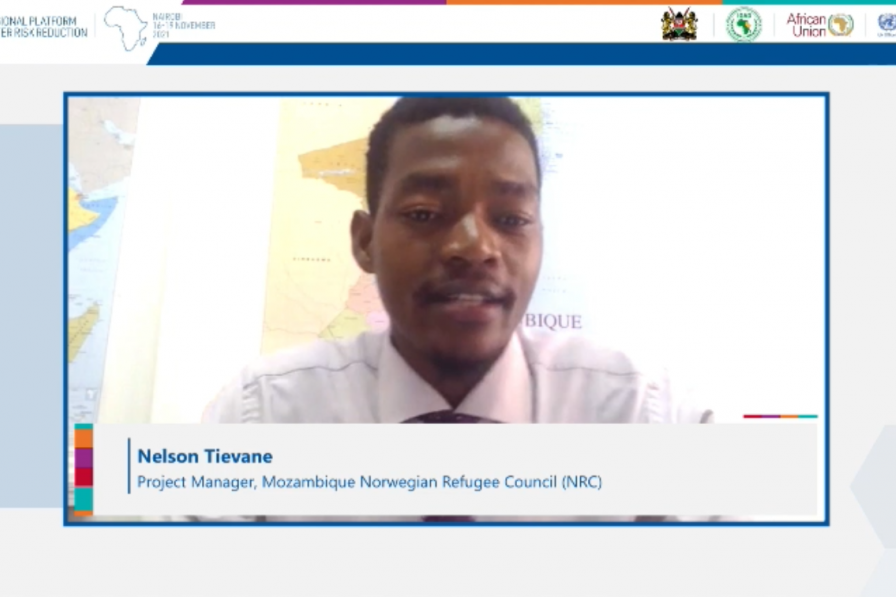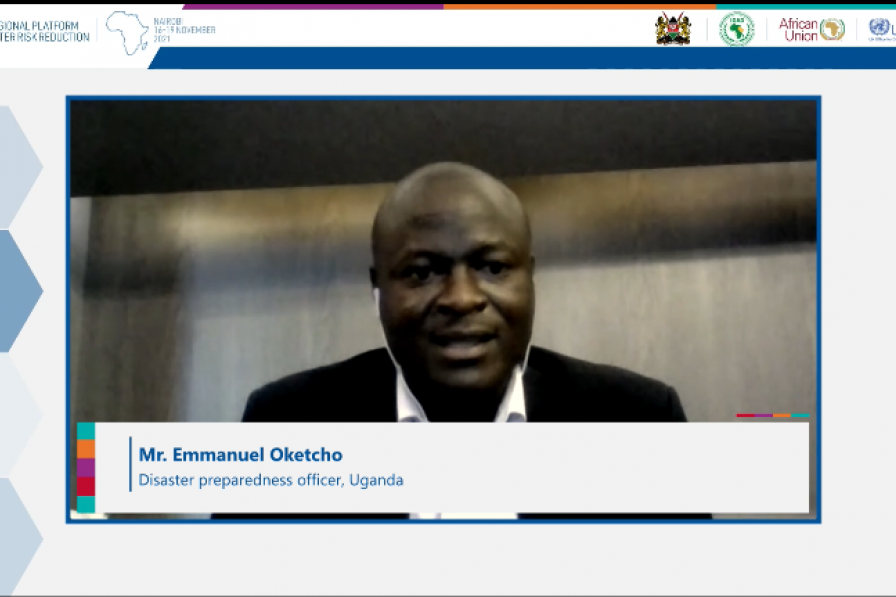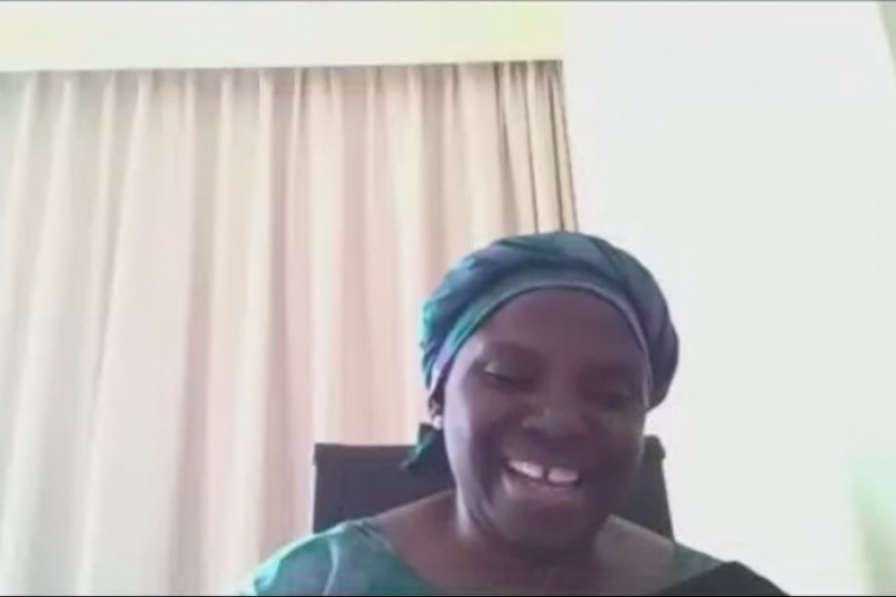The Eighth Africa Regional Platform for Disaster Risk Reduction officially opened on Wednesday, 17 November, under the theme “Towards Disaster Risk-Informed Development for a Resilient Africa in a COVID-19 Transformed World.” Throughout the day, speakers considered Africa’s progress in implementing the Sendai Framework and its Africa Programme of Action, including Kenya’s experience. Participants also heard a presentation on the COVID-19 recovery framework for Africa, which is being developed by the United Nations Development Programme (UNDP) and is expected to be ready by the end of the year..
In opening remarks, Stephen Jackson, UN Resident Coordinator, Kenya, stressed efforts to address complex development challenges are outpaced by disasters, and called for enhanced regional cooperation to build a multidimensional resilience strategy in Africa.
Guleid Artan, Director, Intergovernmental Authority on Development (IGAD) Climate Prediction and Application Centre (ICPAC), underscored that reducing disasters calls for risk assessment, robust risk governance mechanisms and more investment in disaster risk reduction (DRR), as well as addressing the imbalance in financing and investment.
Mami Mizutori, Special Representative of the UN Secretary General for DRR, United Nations Office for DRR (UNDRR), emphasized the need for robust local strategies for DRR, international cooperation, good planning, and competence. She highlighted, among other things, the Making Cities Resilient for 2030 Initiative.
Josefa Correia Leonel Sacko, Commissioner for Agriculture, Rural Development, Blue Economy and Sustainable Development, African Union Commission (AUC), highlighted the need for a paradigm shift and urged comprehensive disaster recovery programmes with a clear roadmap. She called for investing in better collection and management of disaster risk data for more informed decision making.
Karanja Kibicho, Ministry of Interior and Coordination of National Government, Kenya, stressed that development programmes must be risk informed and also ensure gender parity.
Following the opening ceremony, a series of plenary sessions focused on Africa’s progress in implementing the Sendai Framework and its Africa Programme of Action. Cecilia Aipira, UNDP, presented on the COVID-19 recovery framework for Africa, which was commissioned by the AUC and is being developed by UNDP. She explained that the framework aims to, inter alia, provide guidance to African Union (AU) Member States in planning and implementing short-, medium- and long-term pandemic recovery.
A Special Session on “Coordination and Cooperation for Multi-Hazard impact-based Early Warning Systems in Africa” showcased efforts including:
- the AUC continental situation room for DRR data and information exchange, monitoring, and analysis;
- the ICPAC Disaster Operations Center; and
- the Climate Risk and Early Warning Systems (CREWS) Initiative.
The session on “Strengthening the Peer Review Mechanism for DRR” focused on the peer review mechanism for DRR in Africa. Moderator Valery Yao Yao, African Peer Review Mechanism (APRM), presented on lessons learned from the APRM, a mutually agreed instrument voluntarily acceded to by AU Member States as an African self-monitoring mechanism.
During the session on “Addressing Disaster Displacement,” Ivana Hajžmanová, Internal Displacement Monitoring Centre, provided an overview of internal displacement in sub-Saharan Africa. She explained that conflict is a major driver but disaster is a close second, with disaster displacement rates increasing every year in the region. Nelson Tievane, Mozambique Norwegian Refugee Council, highlighted various tools, including the UNDRR Words into Action Guide on Reducing Risk, Addressing Impacts and Strengthening Resilience on Disaster Displacement.
The session on “Enhanced Cooperation for an African Network of Excellence on Early Warning for Early Action” was moderated by Rakiya Babamaaji, National Space Research and Development Agency (NASRDA), Nigeria, who underscored the need for a wide range of stakeholders to encourage enhanced cooperation. Andrea Toreti, European Commission Joint Research Centre, called for action to reduce risk, through transforming data such as climate observations, predictions, and sectoral knowledge. He highlighted a number of data platforms that can assist in this regard, such as the East Africa Drought Watch.
Mariane Diop Kane, World Meteorological Organization (WMO), said addressing disaster risk is possible, but should be done using early warning systems, of which Africa has few. She drew attention to WMO’s drought and water management programmes, noting water stress in countries is on the increase.
Side Event: Taking Stock of Disability Inclusion in DRR Across Africa
This side event was organized by CBM (an international Christian development organization) and the International Disability Alliance (IDA) and focused on promoting disability-inclusive DRR.
Elham Youssefian, Inclusive Humanitarian and DRR Adviser, IDA, noting that the goal of the Sendai Framework is to ensure a more inclusive and resilient DRR for Africa, urged all activists to participate in the consultations taking place as part of the review. She also discussed an IDA project Putting Persons with Disabilities at the Centre of Humanitarian Preparedness and Response, which aims to foster inclusive approaches to DRR and humanitarian action.
Olivia Chibgwe, Civil Protection Unit, Zimbabwe, outlined national efforts to promote disability-inclusive DRR such as: inclusive materials focusing on DRR, designed specifically for persons with hearing impairments; information, education, and communication materials produced in braille; engaging the Department of Disability Affairs in DRR programming; and incorporating CBM in the National Civil Protection Committee to ensure disability issues are raised and addressed.
Simon Munde, Federation of Disability Organizations in Malawi, discussed Malawi's experience in implementing the guidance for prioritizing disability inclusion in DRR developed in collaboration with CBM. He urged disability inclusiveness in every DRR process, including contingency planning and mapping of evacuation routes.
Talal Waheed, CBM Global Advisor for DRR, underlined that early warning systems must be disability inclusive, not just in infrastructure, but also regarding communication.
To receive free coverage of global environmental events delivered to your inbox, subscribe to the ENB Update newsletter.
